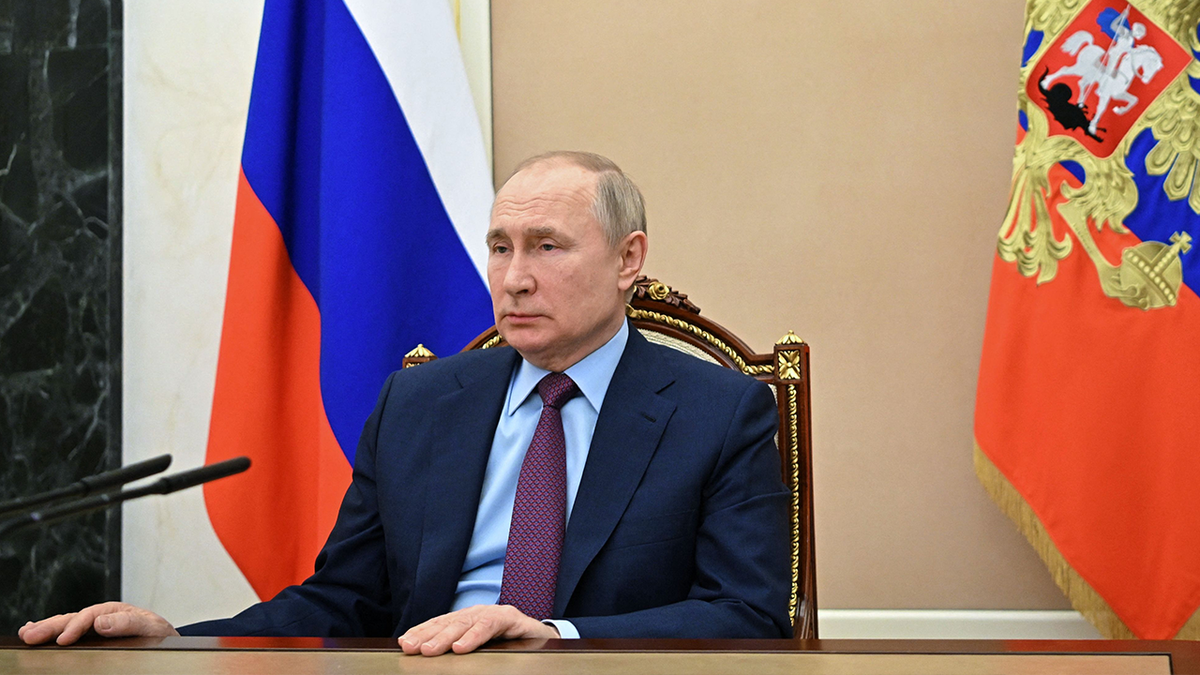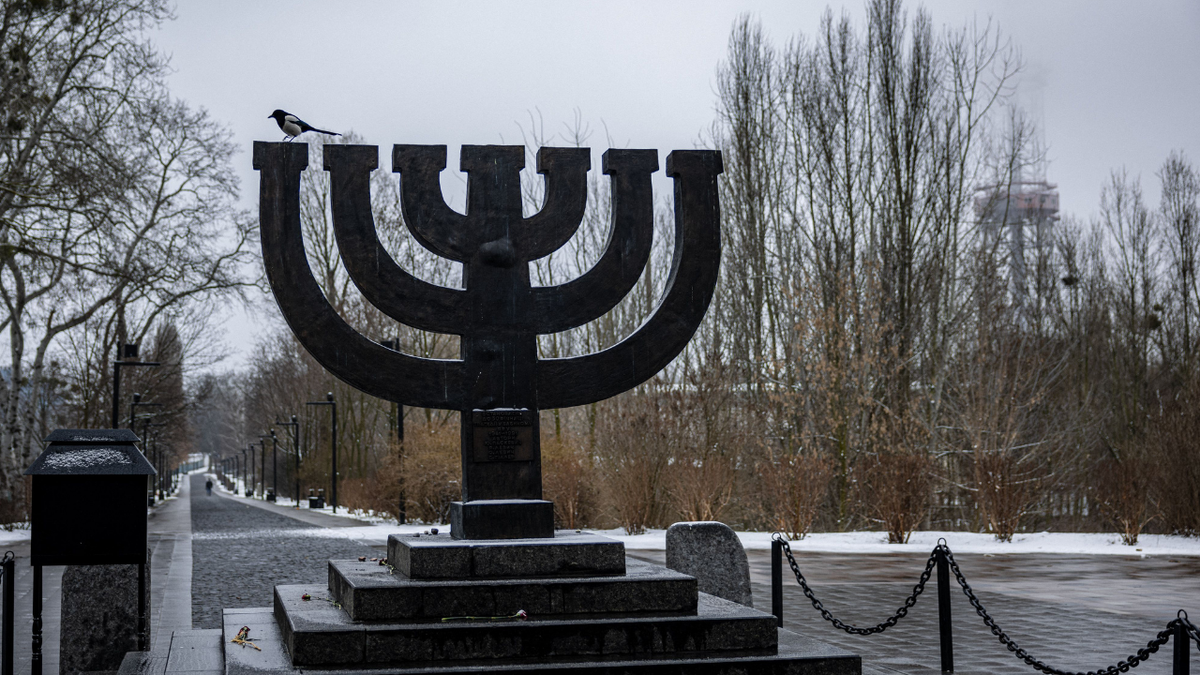UN confirms 1.45M Ukrainians have fled country
Fox News correspondent Mike Tobin has the latest developments as Ukrainians flee country.
The International Criminal Court opened an investigation into possible war crimes after Russian President Vladimir Putin approved a "special military operation" in Ukraine Feb. 24, a somber reminder of the number of war crimes committed over the last century.
The United Nations says that war crimes must occur during an armed conflict, and examples may include murder, cruel treatment and torture, taking of hostages, intentionally directing attacks against the civilian population, and more.
One expert previously told Fox News Digital that the ICC will investigate potential war crimes committed by individuals.
"With respect to the situation in Ukraine, the ICC prosecutor may investigate allegations of war crimes, crimes against humanity and the crime of genocide," Dustin Lewis, research director at the Harvard Law School Program on International Law and Armed Conflict, said.
RUSSIA INVADES UKRAINE: LIVE UPDATES

Russian President Vladimir Putin attends a meeting with Russian Defence Minister Sergei Shoigu at the Kremlin, in Moscow on February 14, 2022. ((Photo by Alexei Nikolsky/Sputnik/AFP via Getty Images))
"The ICC is empowered to exercise jurisdiction only over natural persons. In other words, it may institute proceedings only against individual humans. The ICC has no jurisdiction over the entities with which those humans may be affiliated, such as a government or a military," he added.
Here's a look at some war crimes of the past century:
Armenian Genocide
From 1915 to 1916, hundreds of thousands of Armenians died after the Ottoman Turks began mass deportations from eastern Anatolia, which resulted in mass numbers of people dying from starvation or disease, according to the BBC.
Before beginning the mass deportations, the Young Turk regime hanged hundreds of Armenians in the streets of Istanbul, according to Yale University.
The International Association of Genocide Scholars estimates that the number of deaths were "more than a million," but that number is disputed. Armenians claim that the number of deaths is 1.5 million, while the Republic of Turkey says that it's 300,000.
Multiple senior Ottoman officials were tried in connection with the genocide. For example, Mehmed Kemal, a local governor, was found guilty at the trial and was hanged for his involvement in the mass killing of Armenians, according to the report.
While Turkey doesn't deny the staggering number of Armenian deaths, its government says that the "Armenian deaths do not constitute genocide," according to Radio Free Europe.

People lay flowers at the Armenian Genocide Memorial Complex on Tsitsernakaberd Hill on Armenian Genocide Remembrance Day, which commemorates to commemorate the victims of the Armenian Genocide in the Ottoman Empire. (Photo by Hayk Baghdasaryan\TASS via Getty Images)
German War Crimes during World War II
While many war crimes were committed during World War II, the most heinous was the Holocaust, when the Nazi German regime killed six million European Jews.
Nazi leader Adolf Hitler considered the Jews an inferior race who were a threat to German racial purity, and enacted laws that targeted Jews, excluding them from German society, according to the United States Holocaust Museum.
In September 1941, every person designated as a Jew in Nazi Germany was required to wear a yellow star, which made them a target, according to History.com.
Between 1941 and 1945, during World War II, Nazi Germany began the Holocaust death camps, where six million Jews were killed. Officials in Germany transported Jews to these death camps, where they were deprived of food, water, bathrooms, heat, and medical care, according to the United States Holocaust Museum.
It wasn't until May 1945 when the Holocaust came to an end, when the Allied Powers began to overrun concentration camps and then liberate those who had survived, according to the museum.
Algerian War
The Algerian National Liberation Front fought France between 1954 and 1962 in the Algerian War, and historians estimate that around 250,000 to 300,000 Algerians died during the war, the University of North Carolina says.
In 1954, the National Liberation Front launched a number of armed revolts throughout the country and demanded that the nation be declared independent, and France sent troops to the country to monitor the situation, according to the Atlantic.
By August 1945, the National Liberation Front targeted civilians and incited a mob that killed more than 120 people, according to the report. In response, French troops and "vigilante committees" killed between 1,200 and 12,000 Muslims.
After years of battles and hundreds of thousands of civilians killed, the French declared a ceasefire and the Algerian people voted to become independent of France in 1962.
One French officer, Paul Aussaresses, admitted to torturing as well as killing Algerian prisoners of war, according to the BBC. A French court convicted Aussaresses of defending the usage of torture in 2002.
The post-war amnesty prevented Aussaresses and others from being tried for war crimes, according to the BBC.
Russo-Georgian War
The Russo-Georgian war began on August 8, 2008, when Russian forces moved into Georgia and began the first war in Europe of the 21st century, according to the Atlantic Council.
During the conflict, which lasted five days, several hundred civilians and military members died, according to the Brookings Institute, but the fighting displaced between 100,000 and 200,000 individuals.
The International Criminal Court opened an investigation into war crimes committed during the war, but has faced several challenges.
The European Court of Human Rights ruled in January 2021 that Russia was responsible for several human rights violations during the war, which includes murdering Georgian civilians, as well as looting and burning homes, according to the Guardian.
CLICK HERE TO GET THE FOX NEWS APP

A view of the Babyn (Babi) Yar Holocaust Memorial Center in Kyiv on March 2, 2022. (Hoto By Dimitar Dilkoff/AFP Via Getty Images)
Wars between Russia and Chechnya
After adopting a constitution that declared Chechnya independent in 1992, Russian troops entered the country in 1994 with the goal of taking down the independence movement, according to the BBC. The war, which lasted 20 months, killed an estimated maximum of 100,000 people. It lasted from 1994 to 1996.
The second war between Russia and Chechnya began in the summer of 1999, as Chechen fighters battled with troops from Russia on the border of Chechnya-Dagestan, according to the BBC. During that summer, the Chechen rebels battled in Dagestan in an attempt to create an Islamic state. The second war went from 1999 to 2000, with Russia declaring direct rule over the country.
Human Rights Watch alleged that Russian forces committed "grave abuses," which include war crimes, during the war.
In a hearing before the U.S. Senate Committee on Foreign Relations, Peter Bouckaert, a researcher at Human Rights Watch, presented evidence of the war crimes.
Bouckaert stated that Russian forces conducted a "carpet-bombing campaign," which resulted in the "vast majority" of civilian deaths during the war.
"The Russian forces have used powerful surface-to-surface rockets on numerous occasions, causing death tolls in the hundreds in the Central Market bombing in Grozny and in many smaller towns and villages," Bouckaert said.
He added that Russian forces turned much of Chechnya into a "wasteland."









































